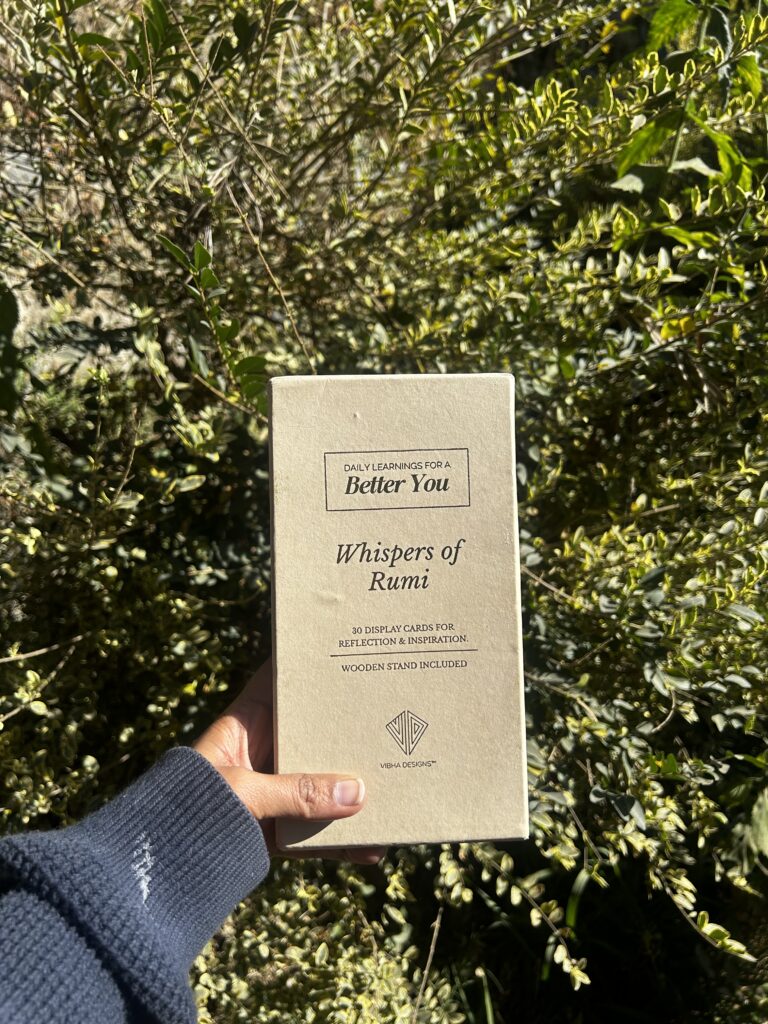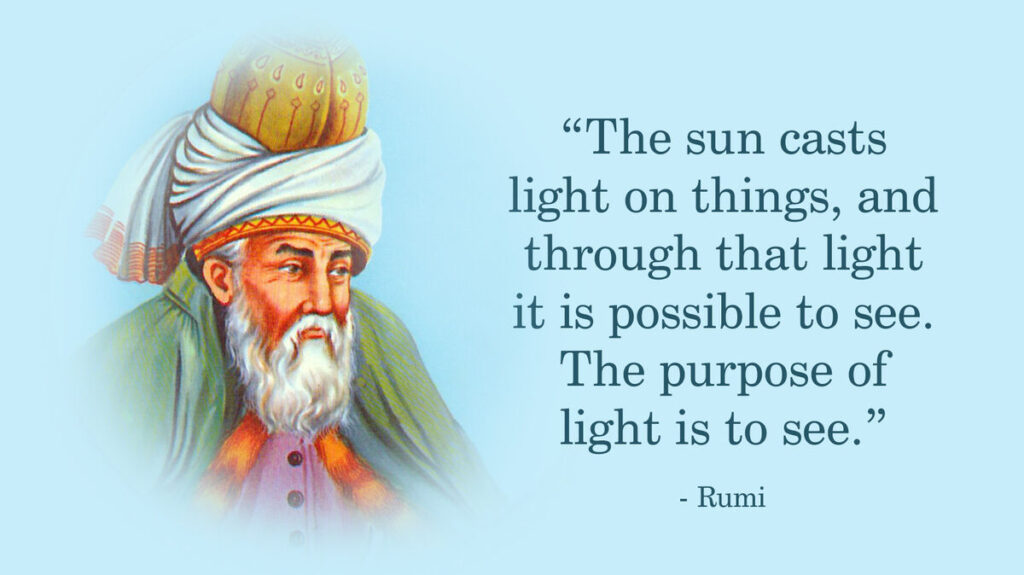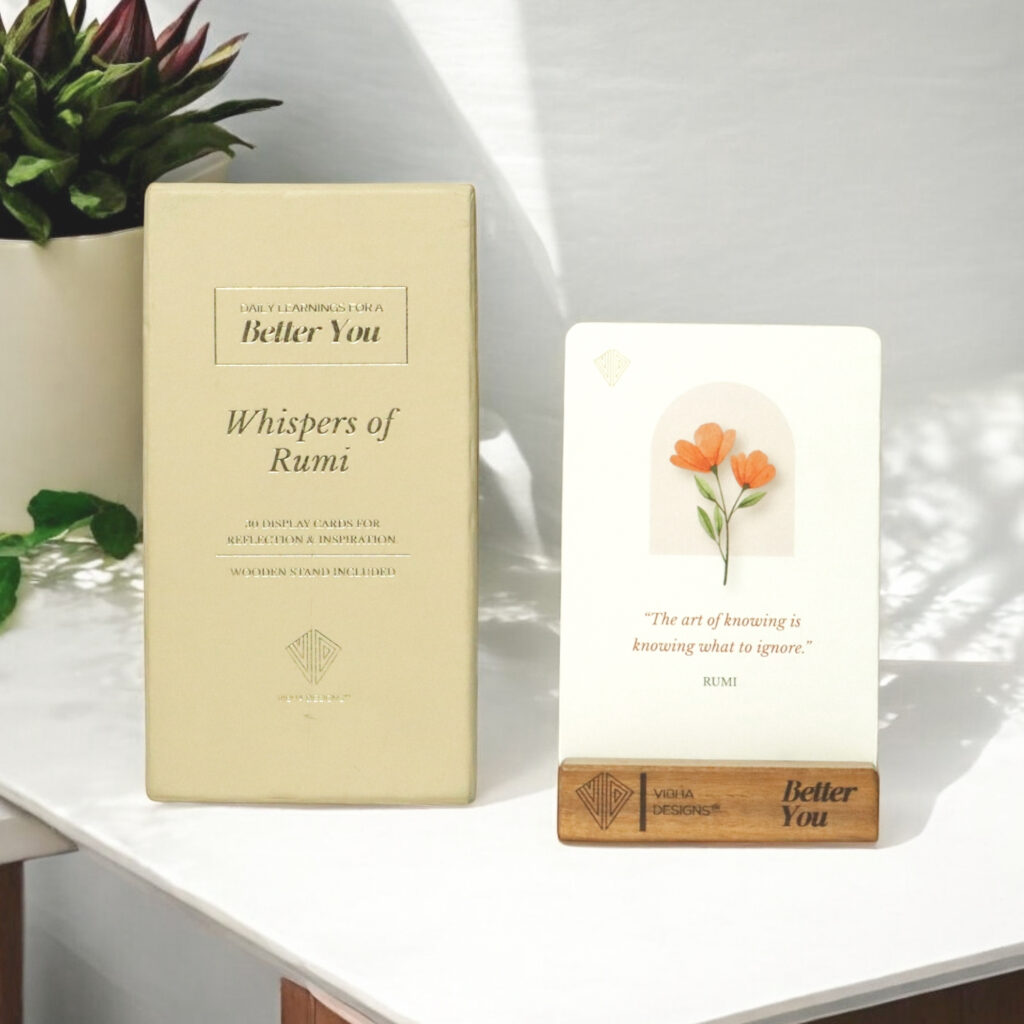Have you ever sat in silence, wondering:
“Why am I always overthinking?”
“Why do small things affect me so deeply?”
“Why do I feel everything so much – anger, sadness, love, fear sometimes all at once?”
If you’ve asked yourself any of those questions, you’re not weak.
You’re not broken.
You’re just human. And you feel more than others do.
But here’s what most people don’t tell you:
Feeling too much doesn’t mean you’re lost.
It might just mean… you haven’t had the right space to listen to yourself.
That space can begin with poetry.
And not just any poetry but the timeless words of Rumi, a poet who understood emotions better than most modern-day psychologists.

Why Do You Overthink, Blame Yourself, or Get Emotionally Drained?
Let’s be honest, today’s world doesn’t give you much room to slow down.
You’re expected to stay strong, perform well, and stay positive.
You’re told to “move on,” “let go,” “be grateful,” even when your heart is full of doubt or hurt.
So what do you do?
You suppress.
You distract.
You scroll.
But the feelings don’t leave and they pile up.
Soon, the anxiety shows up as restlessness.
The sadness hides behind anger.
And your self-blame grows louder with every overthinking spiral.
You try to make sense of it but nothing quite works.
That’s when you don’t need more noise.
You need something quiet, something still, something that sees your inner world without fixing it.
That’s where Rumi comes in.

Rumi: The Poet of the Soul
Rumi lived over 700 years ago. He didn’t write self-help books or teach therapy.
But what he wrote through poetry which helps people across generations understand one thing:
Your pain has meaning.
Not everything needs to be “solved.”
Some things need to be felt, accepted, and gently explored.
Here’s one of Rumi’s most powerful lines:
“The wound is the place where the Light enters you.”
It doesn’t try to fix your sadness.
It simply shows you that pain is not your enemy. It’s your entry point to healing.
What Makes Rumi’s Poetry Different
Rumi never says, “Be happy.”
He says, “Be honest with yourself.”
He doesn’t tell you to avoid hard feelings, he helps you sit with them without shame.
When you read a few lines of his poetry, you may not find a solution.
But you’ll find something better: recognition.
You’ll realize, “This thing I’m feeling… someone else has felt it too.”
And suddenly, you’re not alone anymore.
Using Rumi’s Words to Reflect on Your Own Emotions
Here’s a simple way to explore Rumi’s poetry in your daily life not as motivation, but as reflection:
Start your day with a pause. Before checking your phone, take 30 seconds to breathe.
Read one line of poetry. Not a whole page. Just one line.
Ask yourself: What is this speaking to in me today?
Write your response. A sentence is enough. Let it come from the heart, not the head.
Repeat whenever your thoughts feel heavy. Don’t force insight. Let it unfold.
This isn’t about being spiritual or poetic. It’s about learning to hear your inner voice again.
Why This Matters More Than Ever
You live in a fast world that rewards productivity, not presence.
It praises confidence, not silence.
It tells you to keep going, even when your heart says “pause.”
But if you never slow down, if you never learn to reflect, you begin to disconnect from yourself.
And when you disconnect from yourself, you stop trusting your own emotions.
That’s why reading Rumi isn’t about becoming wiser. It’s about becoming more honest – with your joy, your pain, your hope, and your fear.

Final Thoughts
You don’t need to escape your emotions.
You need to understand them.
Not through rules, but through reflection.
Not through judgment, but through poetry.
Rumi’s words won’t give you the answers. But they’ll help you ask the right questions, the kind that lead you back to yourself.
And maybe, that’s the healing you’ve been waiting for all along.
